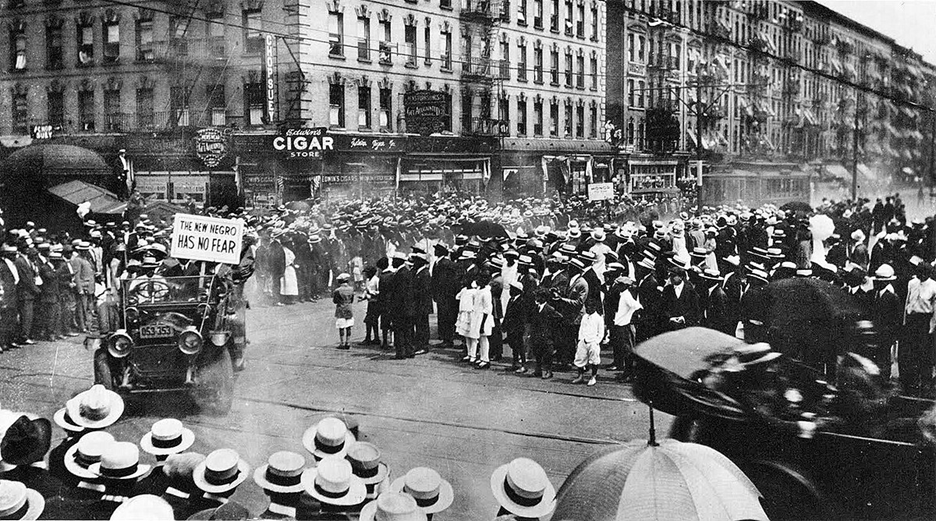Freedman's Bureau
U.S. government agency that helped formerly enslaved people after the Civil War.
Robert Smalls
American politician who was born into slavery in Beaufort, South Carolina.
Jazz Music
Jazz is a music genre that originated in the African-American communities of New Orleans, Louisiana, in the late 19th and early 20th centuries, with its roots in blues, ragtime, European harmony, African rhythmic rituals, spirituals, hymns, marches, vaudeville song, and dance music.
The rebuilding of the south after the civil war
Reconstruction
The Great Migration
One of the largest internal migrations in US history. Six million African Americans relocated in waves from the South to the North, Midwest, and western United states from the 1910's to the 1970's.
NAACP
National Association for the Advancement of Colored People
Booker T. Washington
Booker T. Washington was born into slavery and rose to become a leading African American intellectual of the 19 century, founding Tuskegee Normal and Industrial Institute (Now Tuskegee University) in 1881 and the National Negro Business League two decades later. His infamous conflicts with Black leaders like W. E. B. DuBois over segregation caused a stir, but today, he is remembered as the most influential African American speaker of his time
Kathrine Dunham
Katherine Mary Dunham was an African American dancer, choreographer, anthropologist, and social activist
13th Amendment
officially abolished slavery, or involuntary servitude except as punishment for a crime
Factors that led to the Great Migration
Labor shortages, floods, boll weevils, lynching, new railway system
Atlanta Exposition Address
What came to be known as the Atlanta Compromise stemmed from a speech given by Booker T. Washington, president of the Tuskegee Institute, to the Cotton States and International Exposition in Atlanta, Georgia, on September 18, 1895.
W.E.B. DuBois
W.E.B. Du Bois, or William Edward Burghardt Du Bois, was an African American writer, teacher, sociologist and activist whose work transformed the way that the lives of Black citizens were seen in American society.
Zora Neale Hurston
Zora Hurston was a world-renowned writer and anthropologist. Hurston’s novels, short stories, and plays often depicted African American life in the South. Her work in anthropology examined black folklore. Hurston influenced many writers, forever cementing her place in history as one of the foremost female writers of the 20th century.
14th Amendment
Defined the principle of birthright citizenship in the United States and granted equal protection to all people
Impact of the Great Migration on northern cities
Infused northern cities with Black Southern culture, transformed African-Americans from primarily rural to primarily urban dwellers
HBCU's
(Name 7)
Historically Black Colleges and Universities
7?
Nannie Helen Burroughs
Nannie Helen Burroughs was an educator, orator, religious leader, civil rights activist, feminist, and businesswoman in the United States. Her speech "How the Sisters Are Hindered from Helping," at the 1900 National Baptist Convention in Virginia, instantly won her fame and recognition.
Arturo Schomburg
Arturo Alfonso Schomburg (1874–1938) was a Puerto Rican American historian, writer, curator, and activist.
15th Amendment
Prohibited the federal government and each state from denying of abridging a citizens right to vote on account of race, color, or previous condition of servitude.

Painting by Jacob Lawrence depicting the Great Migration
The Black Star Line
The Black Star Line was a shipping line incorporated by Marcus Garvey, the organizer of the Universal Negro Improvement Association, and other members of the UNIA.
Mary Church Terrell
Mary Terrell was an American civil rights activist, journalist, teacher and one of the first African-American women to earn a college degree. She taught in the Latin Department at the M Street School —the first African American public high school in the nation—in Washington, DC
The Mis-Education of the Negro
Considered Carter G. Woodson’s seminal work, this text explores his thesis that African Americans were being culturally indoctrinated, rather than taught, in American schools. He asserts that this conditioning caused African Americans to become dependent and to seek out inferior places in the greater society of which they were a part.
Union Leagues
Union Leagues started as an effort to re-elect Lincoln. During reconstruction the leagues spread through the South and became a major source or protection for and by Black communities

United Negro Improvement Association (UNIA) parade in Harlem.